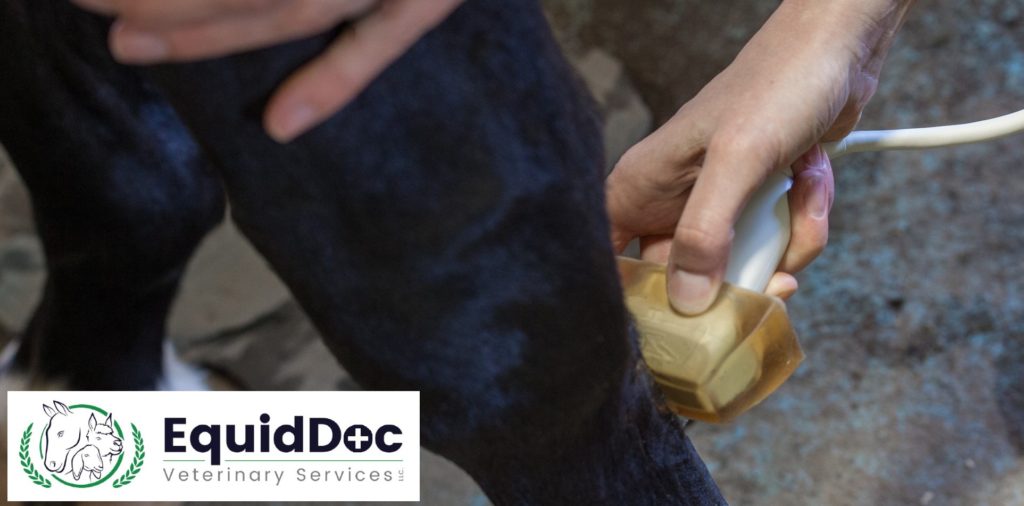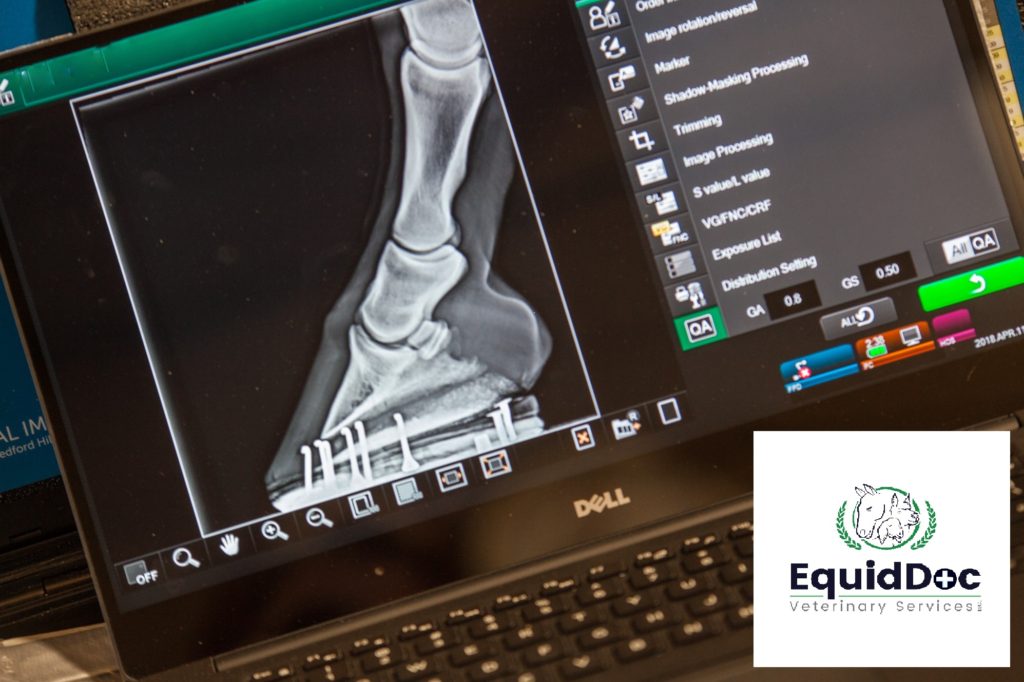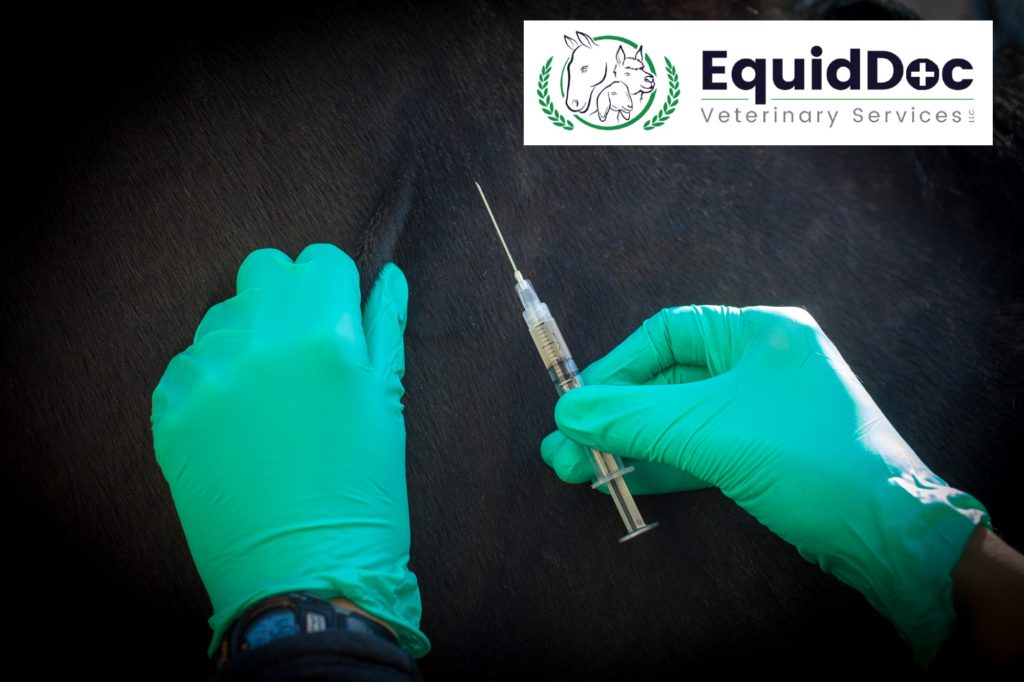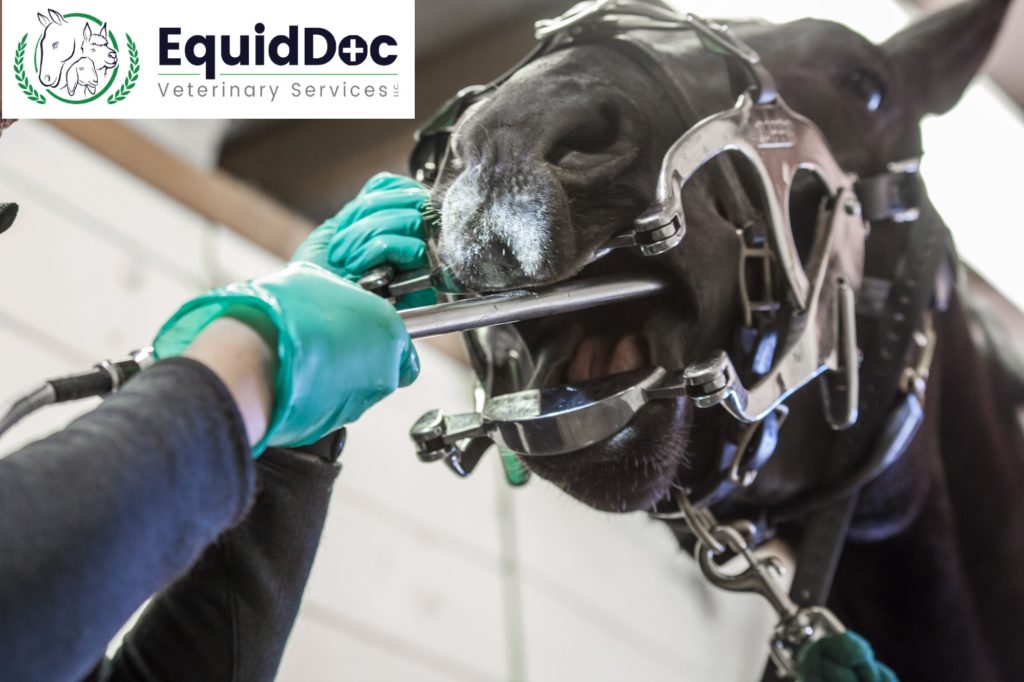Equine Sports Medicine Part 2: Beware of the soft tissue tear!

The science of equine sports medicine is relevant to any ridden or driven horse, be it for the purpose of pleasure, profession, or just healthy competition! In addition to bones and joints being at risk of injury during exercise, soft tissue structures are vulnerable to tweaks and strains during exercise, whether it be low-level or […]
Equine Sports Medicine: So Many Horses with Arthritis

Sports medicine, the treatment, and prevention of injuries related to exercise isn’t just for the competitive equine athlete, but also your occasional trail riding partner. No matter your chosen level of equestrian activity, your horse is prone to exercise-related injury, lameness, or poor performance. The most common ailment requiring treatment in the equine athlete is arthritis or joint inflammation. Osteoarthritis (OA) refers to the slow and […]
Procedure of the Lameness Exam for Horses on the Farm | EquidDoc Veterinarians

With summer comes more time in the saddle, and sometimes a greater opportunity for lameness to develop in your horse. Abnormal gaits caused by musculoskeletal pain are referred to as lameness. Most commonly this appears as a limp on one leg, but lameness can also show up as a shortened stride, inability to maintain a […]
The Scoop on Spring Shots

Vaccination is an integral part of preventative medicine in all animals. Vaccines induce an immune response, or the creation of antibodies, that allows an animal to fight off a virus or bacteria when they are exposed to it again later. Currently, vaccine protocols for adult horses, foals, and pregnant mares are well established and effective. […]
Equine Dental Series, Part 2 – What Are We Looking at In There?

In part two of our equine dental series, we’ll review what your EquidDoc veterinarian is looking for during an oral exam, the issues that can occur at different life stages, and the tools we use to diagnose problems. Young horses should have their first true oral exam around two years of age, or sooner if […]
